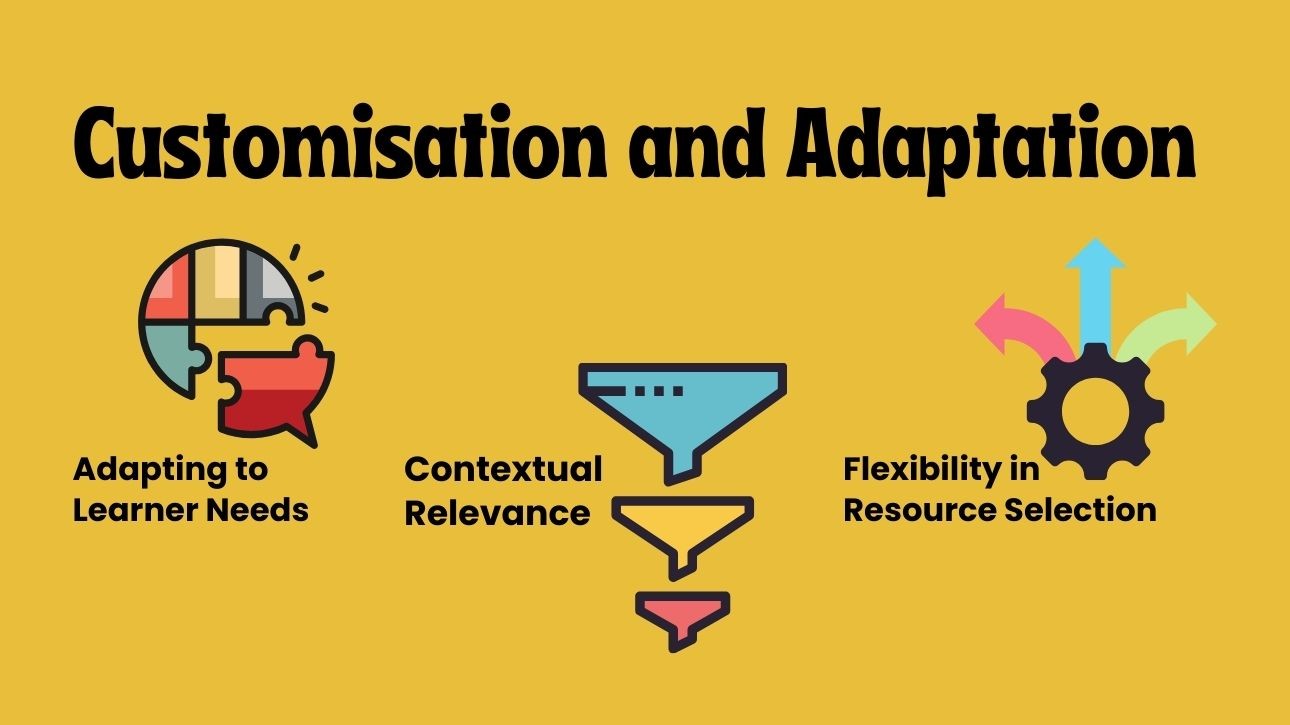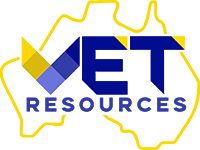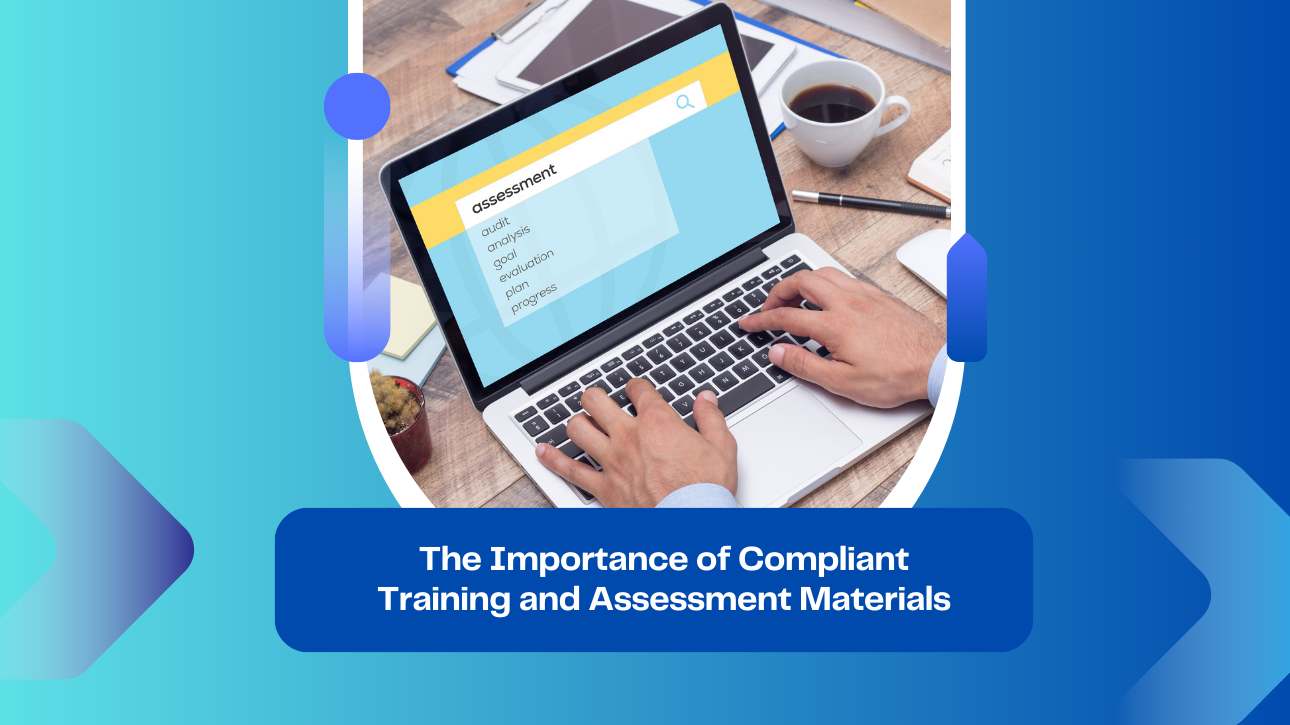Introduction
In Australia, Registered Training Organisations (RTOs) hold an essential role in shaping the future of learners by offering diverse and industry-relevant courses. The task of selecting quality RTO training resources is paramount, influencing not only compliance with the Australian Skills Quality Authority (ASQA) standards but also the overall student experience and the reputation of your organisation.
Choosing compliant training and assessment materials is a commitment to delivering quality education that aligns with the needs and aspirations of the learners. Whether you’re exploring options to purchase training resources or seeking to ensure your RTO materials meet the current industry standards, every decision made contributes significantly to the educational journey and success of your students.
Importance of Compliant Training and Assessment Materials
Compliance is the cornerstone of maintaining and elevating education and training standards within the RTO sector. The Australian Skills Quality Authority (ASQA) plays a vital role in this landscape, setting the benchmarks and ensuring that RTOs adhere to the highest quality of education delivery. From assessment resources to learner guides, every element of RTO training and assessment materials is monitored to meet the stringent standards set by ASQA.
Role of ASQA
ASQA’s mission is to uphold and advance vocational education and training quality in Australia. It meticulously evaluates RTO training resources, assessment tools, and learning materials to ensure they align with industry needs and learner expectations. By doing so, ASQA safeguards the integrity of the Australian VET sector, instilling confidence among students, parents, and industry professionals.
Competitive Advantage through Compliance
Achieving and maintaining compliance isn’t just about avoiding penalties but gaining a competitive edge. RTOs that demonstrate adherence to ASQA standards and showcase high-quality resources are more likely to attract and retain students. Compliance signals a commitment to excellence, fostering trust among learners and stakeholders and positioning the RTO as a reputable provider in the VET sector.
Consequences of Non-Compliance

Non-compliance is a serious matter in the RTO sector, leading to repercussions for the organisation and its students. The consequences are multifaceted, affecting the reputation, operations, and credibility of the RTO:
- Sanctions and Legal Actions: Non-compliant RTOs face stringent sanctions, legal actions, and potential lawsuits, tarnishing their reputation and operational standing.
- Loss of Registration: One of the most severe outcomes is the loss of registration, which can halt the RTO’s operations and impact its future in the educational sector.
- Impact on Students: Students bear the brunt of non-compliance as they may receive qualifications without acquiring the requisite competencies, jeopardising their career prospects.
- Financial Repercussions: The cost of rectifying non-compliance issues can be substantial, leading to financial strain on the organisation.
Audit Findings
ASQA’s 2017 audit report revealed that up to 80% of RTOs were non-compliant with standard 1 of the national standards for RTOs 2015, underscoring the prevalence of compliance issues in the sector.
Addressing Non-Compliance
- Rectification: Addressing and rectifying non-compliance issues promptly is essential to avoid further complications and ensure adherence to ASQA standards.
- Validation: Regular validation of assessment tools and training materials is crucial to maintain compliance and uphold quality standards.
- Continuous Improvement: Adopting a culture of constant improvement and regularly updating training and assessment resources can mitigate the risk of non-compliance.
Tips for Choosing Quality RTO Training Resources

Choosing the right RTO training resources is a critical task that demands attention to detail and a deep understanding of compliance requirements. The process involves obtaining valid resource samples to ensure representativeness and quality, validating assessment tools to mitigate the risk of non-compliance, and ensuring the presence of comprehensive mapping documents for alignment tracking. Additionally, resources with simulated work environments are preferred for their practicality, and the assessment methods must be compliant and effective.
Visual appeal and engagement are also vital, contributing to an enriched learning experience, while the balance between affordability and accessibility is essential to attract a broader learner base. Lastly, accommodating diverse skill levels is crucial, as it ensures the adaptability of resources to meet individual learning needs.
Here’s a concise table summarising the key considerations and their importance:
| Consideration | Importance | Implementation |
| Obtain Valid Resource Samples | Ensures representativeness and quality | Request specific unit samples and demonstrations |
| Validate Assessment Tools | Mitigates risk of non-compliance | Validate sample units before full purchase |
| Ensure Comprehensive Mapping Documents | Aids in alignment tracking | Prioritise resources with clear mapping documents |
| Resources with Simulated Work Environments | Provides practical knowledge | Seek resources that include simulated environments |
| Check Assessment Methods | Ensures compliance and effective assessment | Align resources with industry standards |
| Consider Visual Appeal and Engagement | Enhances learning experience | Opt for visually appealing and interactive resources |
| Balance Affordability and Accessibility | Attracts a wider learner base | Evaluate cost and accessibility |
| Accommodate Diverse Skill Levels | Ensures adaptability to individual learning needs | Customise materials to suit different learning rates |
Customisation and Adaptation

In vocational education, the ability to adapt training and assessment materials to various learner needs, contexts, and industries is paramount. Customisation and adaptation are not mere enhancements; they ensure that learning is accessible, relevant, and engaging for every student.
- Adapting to Learner Needs: Every learner is unique, with different backgrounds, learning styles, and paces. Adapting materials to suit these diverse needs is crucial in ensuring every student can access and benefit from the learning resources.
- Contextual Relevance: The materials used should reflect the real-world scenarios of different industries. This relevance enhances the applicability of learning, preparing students for the challenges and opportunities in their chosen fields.
- Flexibility in Resource Selection: The selection of RTO resources should not be rigid. Flexibility in choosing and adapting resources allows for a more personalised and practical learning experience, catering to the varied requirements of different courses and learner cohorts.
Conclusion
In conclusion, the path to establishing a successful and reputable RTO is marked by a commitment to compliance, quality, and adaptability in training materials. The informed choices made in selecting and adapting resources shape the learning experiences of students and the credibility of the organisation, fostering trust and a dedication to quality education in the vocational sector.
VET Resources is a valuable partner as you seek to navigate this path and elevate educational standards. With a wealth of knowledge and a steadfast commitment to quality, VET Resources is poised to support your RTO in achieving excellence and making a meaningful impact in the field of vocational education in Australia.
Disclaimer:
The information presented on the VET Resources blog is for general guidance only. While we strive for accuracy, we cannot guarantee the completeness or timeliness of the information. VET Resources is not responsible for any errors or omissions, or for the results obtained from the use of this information. Always consult a professional for advice tailored to your circumstances.






